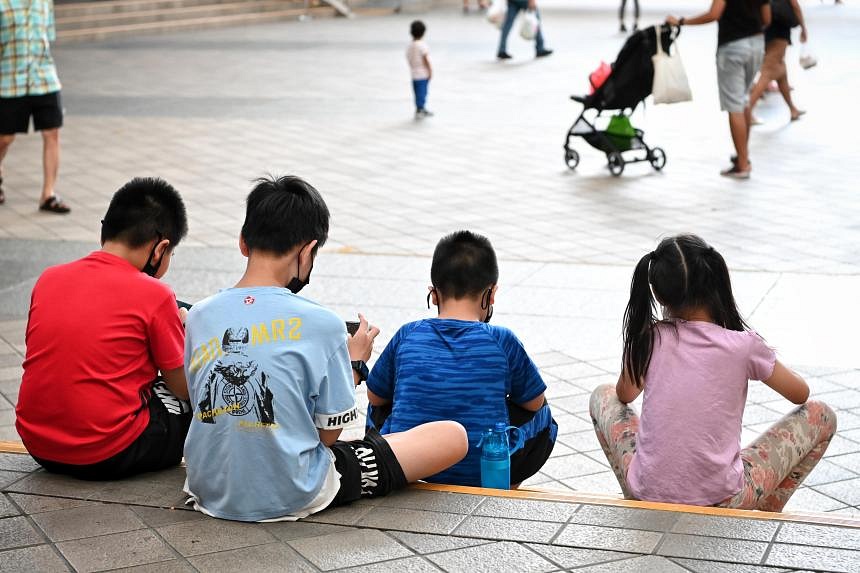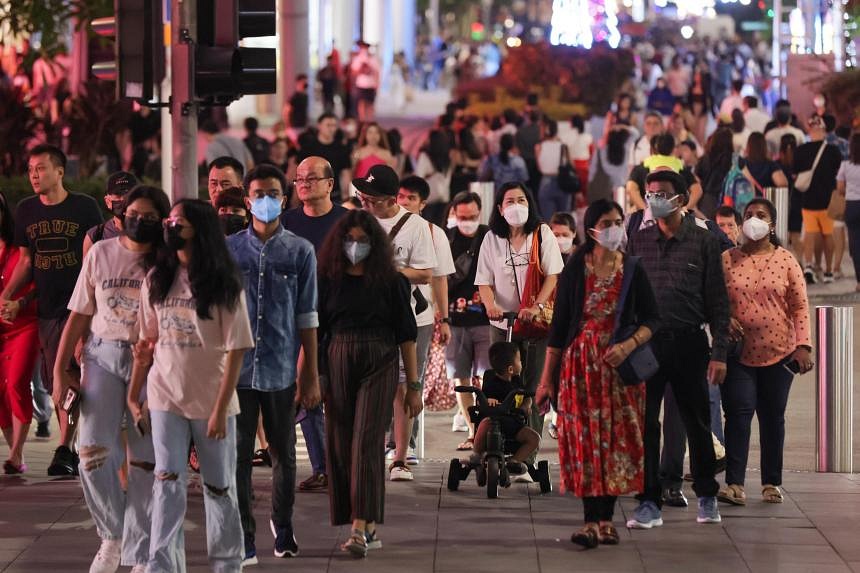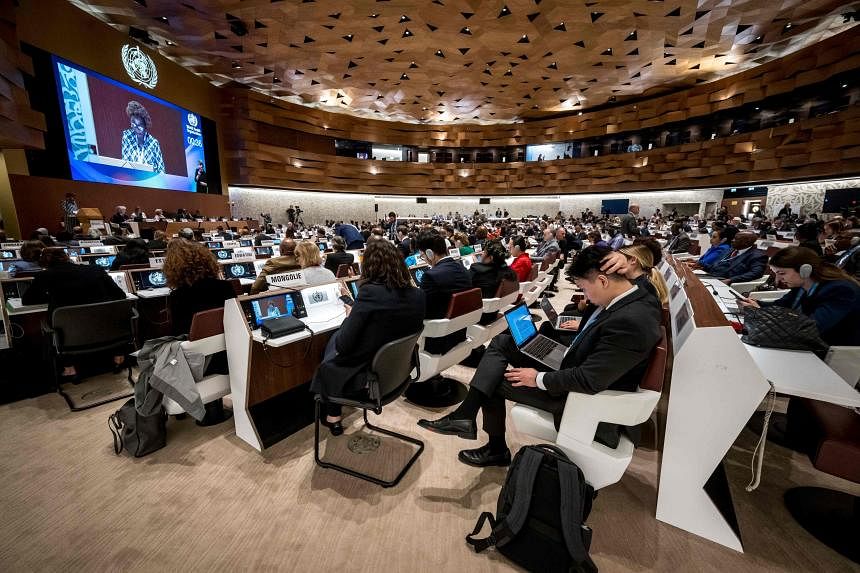from straitstimes.com:
Singapore to put in place measures to deal with screen time and device use in coming months
Another yet-to-be-published study explores how a child’s mental wellness is affected by the linkage between brain development and executive function. PHOTO: ST FILE
Elisha Tushara
Correspondent
UPDATED
JUN 21, 2024, 09:12 PM
FacebookTelegram
SINGAPORE - Measures to deal with device usage in Singapore will be released in the coming months, as electronic devices and social media become a big part of people’s lives, Health Minister Ong Ye Kung and Minister for Social and Family Development Masagos Zulkifli said in separate Facebook posts on June 21.
They highlighted the need for more decisive and effective measures to shape habits of device usage, especially for the young, with research showing negative effects and links to worsening mental health.
“We can make our advice clearer and more definitive; we need to deliver them consistently across all healthcare settings, with more reminders; we need to put them into practice in pre-schools; and we need to find ways to encourage their adoption at home,” said the ministers.
“We will finalise and announce these initiatives in the coming few months.”
Their comments come after
United States surgeon-general Vivek Murthy recently called for a warning label on social media platforms for young users, arguing that social media is associated with mental health harms for adolescents.
He argued that the mental health crisis among young people constitutes an emergency and that social media, which is addictive by design, is likely an important contributor.
“Although some commentators disagree with this hypothesis, in an emergency, Dr Murthy argued that we cannot afford to wait for the debate to be concluded. We need to act and put in place measures now,” Mr Ong and Mr Masagos said in their Facebook posts.
“The starting point is screen time for the very young, 0-six years old. This shapes their habits in social media usage,” they said, adding that the Ministry of Health (MOH) and the Ministry of Social and Family Development (MSF) oversee the key touch points for children up to six years old, through child and maternity care, and pre-schools.
The impact of screen time on child development is a key focus of Gusto – Growing Up in Singapore Towards Healthy Outcomes – a local research effort, which has followed children conceived in 2009, the ministers said.
The Gusto study examines how conditions in pregnancy and early childhood influence the health and development of women and their children.
One finding from the study showed that pervasive screen time when the child is 12 months old altered brain activity before the child is two years old.
It also negatively affected executive function – a set of mental skills such as self-control and working memory – when the child reached nine years of age.
“Another study found that screen time in infancy contributes to enduring individual differences in topological brain restructuring. Simply put, screen time exposure compromises the brain development of young children,” said the ministers in their posts.
Another yet-to-be-published study explores how a child’s mental wellness is affected by the linkage between brain development and executive function, they added.
The ministers said that the MOH and MSF have been discussing this issue of screen time over the past months, and share the concerns expressed by Dr Murthy. Prime Minister Lawrence Wong has also
said tackling the mental health challenge is a national priority.
They said: “The impact of social media on mental health is not an unintuitive concept. Today, young minds are exposed to information, interactions and behaviours they do not have the maturity for; it takes away time for physical play and interactions, all of which can affect them profoundly as they grow up.”
In March 2023, MOH issued a formal advisory on screen use in children, with the emerging body of evidence internationally and locally.
For children under 18 months, parents are advised to discourage any screen use unless it is for interactive video chatting.
For children between 18 and 36 months old, it is advised to limit total screen use to less than one hour a day. Older children are advised to avoid screen use during meals and one hour before bedtime.
Such advice has been regularly and routinely given by healthcare professionals to expecting parents at Singapore’s public hospitals and polyclinics, said the ministers.
“Electronic devices and social media have become part of our lives. Our young need to use them properly, to enhance their lives, and not inadvertently undermine their mental wellness,” they said.
How parents can manage their children’s screen time
Children under 18 months old
- Discourage any screen use unless it is for interactive video chatting. Reduce background screen use.
Children between 18 months and six years old
- Less passive screen use is recommended, and this should be balanced with active, interactive and educational screen use. Total screen use should be limited to less than one hour a day.
- Watch media with children where possible. Talk to them about what they are viewing to keep them actively engaged. Avoid using screens to keep children occupied.
- Carefully choose educational content for children and ensure that the content is age-appropriate.
- Avoid harmful content such as those that contain references to violence, sexual behaviour, suicide, self-harm, or cyberbullying.
- Avoid screen use during meals and one hour before bedtime.
Children between seven and 12 years old
- Develop a screen-use plan or timetable for the family to help achieve a balance between screen use and other activities, such as family bonding, homework and exercise.
- Have regular conversations with children to find out what they are doing online.
- Educate children about potential online risks, including inappropriate content, cyberbullying, and speaking to strangers online.
- Consider using parental control settings to monitor and ensure children access age-appropriate content.
- Avoid harmful content and screen use during mealtimes and one hour before bedtime. Take appropriate steps if you have concerns that your child has difficulty regulating his or her screen use.

























































